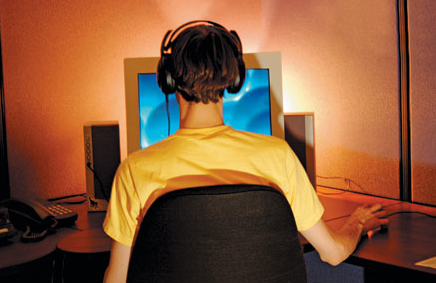A Picture is Worth a Thousand Words


Like radioactive waste, the videos your tween or teen uploads to the Web could have damaging effects for years. Whether they’re shared via YouTube, Blip, Dailymotion or Revver, your kid’s creations can be copied, forwarded, reposted or cached, resurfacing months after you’ve deleted them.
While making movies is a great outlet for creative kids, be sure your budding director follows these tips to protect his safety, his reputation and his future.
First, before hitting the “upload” button, your child should ask himself if the video is something he’d be proud to show his grandma, his boss or his future fiancée. Playing around with friends, kids can produce videos that range from just plain goofy to downright offensive. Remind your tween or teen that what he wears, what he says and how he behaves – even the spinach caught in his teeth – might be replayed for years.
That being said, kids need to know that some things simply aren’t allowed. Remind the videographer that it’s never OK to use threatening or racist language, or to ridicule another person. This is a form of cyber bullying, and it could have severe consequences both for the victim and your child. Your child should also never post nude or sexual photos or videos of himself or his friends. In most jurisdictions, he could be charged with child pornography.
Your videographer should also be careful about sharing personal information about himself or his friends.
Warn him not to divulge the basics, like his name, address and phone number, or any other information that could make him a target of cyber bullies. This includes being careful about what’s included in the shot; a street address, license plate number, sports-team shirt or common landmarks can tip off viewers to his identity and whereabouts.
Your child should also watch out for the privacy of the people he includes in his video. If he’s shooting in a public place, like a park or shopping mall, he should ask bystanders if they mind being included in the video; if they do, he should frame them out. He should also ask permission from the parents of anyone under the age of 18 before uploading a video clip to the Internet, even if the “star” is one of his close friends. On the flip side, your child should be aware that other friends or peers could be taking their own video, even with a smart phone, so he should watch what he says and does.
Look over the sites your child would like to use and go over their terms of use.
They will spell out exactly what is and isn’t allowed on the site, from violent or illegal acts to harassment and obscenity. Make sure your child understands what these terms mean. Your child also might not realise that he’s violating copyright law if he uses scenes from TV shows or movies, or music he’s downloaded from the web. Copyright infringement is prohibited on most sites.
Finally, check in frequently to see what your budding videographer is creating and viewing. While most of the more popular sites screen out objectionable videos, there may be some that are too grown-up for kids or teens or that send a message that you find inappropriate. Keep a conversation flowing and be clear about the things your family values most.
Article supplied by:
Catherine Gerhardt
Kidproof Melbourne
1 300 577 663










